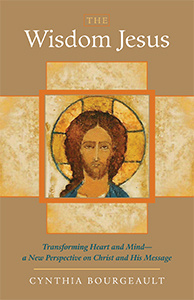Bernard-Henri Levy - The Virus in the Age of Madness
Here you can read online Bernard-Henri Levy - The Virus in the Age of Madness full text of the book (entire story) in english for free. Download pdf and epub, get meaning, cover and reviews about this ebook. year: 2020, publisher: Yale University Press, genre: Science. Description of the work, (preface) as well as reviews are available. Best literature library LitArk.com created for fans of good reading and offers a wide selection of genres:
Romance novel
Science fiction
Adventure
Detective
Science
History
Home and family
Prose
Art
Politics
Computer
Non-fiction
Religion
Business
Children
Humor
Choose a favorite category and find really read worthwhile books. Enjoy immersion in the world of imagination, feel the emotions of the characters or learn something new for yourself, make an fascinating discovery.

- Book:The Virus in the Age of Madness
- Author:
- Publisher:Yale University Press
- Genre:
- Year:2020
- Rating:4 / 5
- Favourites:Add to favourites
- Your mark:
- 80
- 1
- 2
- 3
- 4
- 5
The Virus in the Age of Madness: summary, description and annotation
We offer to read an annotation, description, summary or preface (depends on what the author of the book "The Virus in the Age of Madness" wrote himself). If you haven't found the necessary information about the book — write in the comments, we will try to find it.
The Virus in the Age of Madness — read online for free the complete book (whole text) full work
Below is the text of the book, divided by pages. System saving the place of the last page read, allows you to conveniently read the book "The Virus in the Age of Madness" online for free, without having to search again every time where you left off. Put a bookmark, and you can go to the page where you finished reading at any time.
Font size:
Interval:
Bookmark:
THE VIRUS IN THE AGE OF MADNESS
ALSO BY BERNARD-HENRI LVY
The Empire and the Five Kings: Americas Abdication and the Fate of the World
The Genius of Judaism
Public Enemies: Dueling Writers Take on Each Other and the World (with Michel Houellebecq)
Left in Dark Times: A Stand Against the New Barbarism
American Vertigo: Traveling America in the Footsteps of Tocqueville
War, Evil, and the End of History
Who Killed Daniel Pearl?
Sartre: The Philosopher of the Twentieth Century
Adventures on the Freedom Road: The French Intellectuals in the 20th Century
The Testament of God
Barbarism with a Human Face
Bernard-Henri Lvy

English translation copyright 2020 by Yale University.
Originally published in French as Ce virus qui rend fou, Editions Grasset & Fasquelle, Paris, 2020. English translation by Steven B. Kennedy.
All rights reserved.
This book may not be reproduced, in whole or in part, including illustrations, in any form (beyond that copying permitted by Sections 107 and 108 of the U.S. Copyright Law and except by reviewers for the public press), without written permission from the publishers.
Yale University Press books may be purchased in quantity for educational, business, or promotional use. For information, please e-mail (U.K. office).
Printed in the United States of America.
Library of Congress Control Number: 2020939617
ISBN 978-0-300-25737-3 (paper : alk. paper)
A catalogue record for this book is available from the British Library.
This paper meets the requirements of ANSI/NISO Z39.48-1992 (Permanence of Paper).
10 9 8 7 6 5 4 3 2 1
I, too, was shocked.
But what shocked me was not only the pandemic.
That sort of disaster has always been with us.
A century ago the Spanish flu killed fifty million people.
Considering only our own era, that which I am old enough to remember, there was the famous Hong Kong flu of 1968, from which at least a million earthlings died, their lips blue, from strangulation or pulmonary hemorrhage. In fact, that episode turns out not to be so famous. I looked into it for a column I wrote right at the beginning of the coronavirus pandemic and found that it had been almost completely forgotten.
Ten years before the Hong Kong flu, and no less erased from collective memory and from archives, there had been the Asian flu, which also started in China before ravaging Iran, Italy, eastern France, and the United States. As many as two million perished, including around a hundred thousand in the United States and probably a like number in France, dying in underequipped hospitals where, the last surviving eyewitnesses recall, cadavers piled up in resuscitation rooms faster than they could be evacuated.
No, the most striking thing is the very strange way we reacted this time around.
It is the epidemic of fear, not only of Covid-19, that has descended upon the world.
We have seen hardy souls suddenly paralyzed.
We have heard thinkers who lived through other wars embracing the rhetoric of the invisible enemy, of frontline and reserve fighters in an all-out public health war.
We have watched Paris empty out, as in Ernst Jngers journal of the German Occupation during World War II.
We have watched New York and Los Angeles become ghost towns, their avenues as quiet as country lanes, where, as Victor Hugo said, the days were like the nights. We have watched, during these weeks, the Never Trumpers, the Democrats fighting the America First trend, the activists for civil rights, womens rights, and human rights go virtual or simply disappear from the radar.
I have observed, in videos sent to me from Kiev, Milan, and Madrid, as well as from Lagos, Erbil, and Qamishli, the passing of the occasional scurrying pedestrian, who seemed to be there only to remind us of the existence of the human species, but who then crossed to the other side of the street, eyes downcast, as soon as another human appeared.
All across the planet, in the most impoverished lands no less than in the great metropolises, we have witnessed entire populations tremble and allow themselves to be driven into their dwellings, or sometimes clubbed in, like game into its burrow.
The demonstrators in Hong Kong have disappeared, as if by magic.
My friends in the Peshmerga, fighters whose name means those who go out to meet death, have hunkered down in their trenches.
The Saudis and the Houthis, who had been waging a pitiless, protracted war in Yemen, implemented a brief ceasefire as soon as the first Covid-19 cases appeared.
Hezbollah was staying home.
Hamas, citing eight cases of the virus at the time, declared that their sole military objective was now to obtain respirators from Israel. If necessary, they said, well take them by force. (I can hear Richard III: A mask! A mask! My kingdom for a mask!)
ISIS declared Europe a risk zone for its fighters, who promptly disappeared to wipe their noses on eucalyptus Kleenex in the depths of some cave in Syria or Iraq, while plotting to stir up trouble in safer areas such as Egypt, Yemen, Indonesia, Afghanistan, and the Sahel.
After one suspected Covid-19 case was detected, Panama confined to the jungle 1,700 destitute people who had been trudging north toward the United States.
By mid-April, according to Agence France-Presse, twelve people had died from the virus in Nigeria, whereas eighteen had been killed by security forces for violating the Only a few months earlier, I had been reporting on Christian villages wiped out by Fulani jihadists in the north-central part of the country.
Bangladesh, where I had been reporting just hours before France closed its borders, had long been suffering from a multitude of calamities: dengue fever, cholera, plague, rabies, yellow fever, and unknown viruses. But there, too, as soon as a few cases of Covid-19 were reported, the country, acting as one, cinched itself up.
Indeed, the entire planetrich and poor alike, those with the resources to resist and those withoutpounced on the idea of an unprecedented pandemic poised to eradicate the human race.
So...
What could have brought this about?
Could it have been viral propagationnot just of the virus itself, but of talk about the virus?
Could it have been collective blindness, as in Jos Saramagos novel, where a mysterious epidemic robs an entire town of its sight?
Perhaps it was the victory of the collapsologists who, always alert to the end of the world, see it heading toward us once again and are giving us one last chance to repent and reset?
Or the triumph of the masters of the world, who see in this great confinement (the English translation of the grand renfermement Michel Foucault spoke of in his early speculations on the power systems of the future in Madness and Civilization) a rehearsal of sorts for a new way to arrest, oppress, and detain a mass of people?
Was it a Reign of Terror, akin to the one born after 1789, with its explosion of fake news, conspiracies, frantic flights, and, soon enough, dark uprisings born of hopelessness?
Or perhaps it was the opposite? A reassuring sign that the world had changed, that at last life has been made sacred, that from now on, when we come to a choice between life and economics, life will win out?
Or perhaps it was the opposite of that opposite: a collective panic, aggravated by news channels and social networks that, by reporting to us, day after day, the numbers of those who had died, were still in critical condition, or had recovered, herded us into a parallel universe in which nothing else, anywhere, was newsand, in so doing, drove us quite literally mad. After all, that is how Chinese water torture worksthe sound of the drop, repeated endlessly, becomes a fearsome dragon. How would we react if the traffic safety authorities decided to install giant loudspeakers at one-mile intervals to inform us of the days highway fatalities?
Next pageFont size:
Interval:
Bookmark:
Similar books «The Virus in the Age of Madness»
Look at similar books to The Virus in the Age of Madness. We have selected literature similar in name and meaning in the hope of providing readers with more options to find new, interesting, not yet read works.
Discussion, reviews of the book The Virus in the Age of Madness and just readers' own opinions. Leave your comments, write what you think about the work, its meaning or the main characters. Specify what exactly you liked and what you didn't like, and why you think so.




